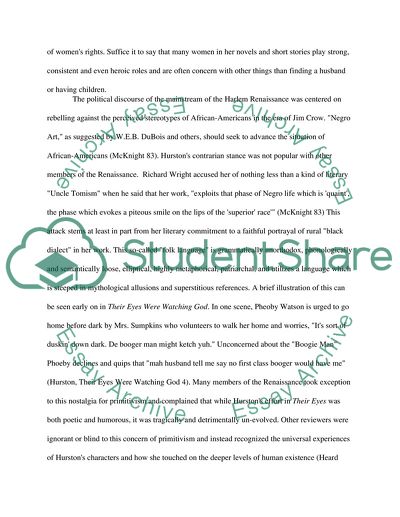Cite this document
(“Zora Neale Hurston Article Example | Topics and Well Written Essays - 1750 words”, n.d.)
Retrieved from https://studentshare.org/people/1544729-zora-neale-hurston
Retrieved from https://studentshare.org/people/1544729-zora-neale-hurston
(Zora Neale Hurston Article Example | Topics and Well Written Essays - 1750 Words)
https://studentshare.org/people/1544729-zora-neale-hurston.
https://studentshare.org/people/1544729-zora-neale-hurston.
“Zora Neale Hurston Article Example | Topics and Well Written Essays - 1750 Words”, n.d. https://studentshare.org/people/1544729-zora-neale-hurston.


